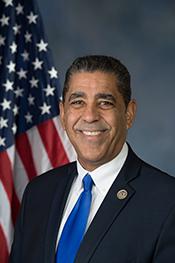H.R. 2185: Mink: Vectors for Infection Risk in the United States Act
This bill, known as the Mink: Vectors for Infection Risk in the United States Act, aims to address public health and human safety by prohibiting the farming of mink for their fur in the United States. Below are the main components of the bill:
Prohibition on Mink Farming
Starting one year after the bill is enacted, no fur farms will be allowed to farm mink. This is intended to prevent potential health risks associated with mink farming.
Mink Termination Requirements
Any mink that need to be terminated must be done humanely, following specific guidelines set by the American Veterinary Medical Association (AVMA). This requirement begins 90 days after the bill is enacted.
Penalties for Non-Compliance
- Fur farms that do not cease operations as required will face civil penalties of up to $10,000 for each day they are non-compliant.
- Those who fail to terminate mink in accordance with the humane methods outlined will also incur civil penalties of up to $10,000 per mink.
Compensation for Fur Farmers
The bill establishes a program that will provide monetary compensation to mink farmers who are forced to stop their operations. This program must be set up within 180 days after the bill is enacted.
Payment Structure
Compensation will cover:
- The reasonable costs incurred for complying with the cessation of mink farming.
- The market value of the mink farming portion of their business, excluding land.
Market Value Determination
The market value will be assessed based on what a willing seller and buyer would agree upon in a competitive market, reflecting the economic value of the farm at the time of the assessment.
Conditions for Receiving Payments
Farmers receiving payments must adhere to certain conditions:
- Payments cannot be used for any activities related to operating a fur farm.
- Recipients must grant a permanent easement that prohibits future fur farming on the property.
Funding for the Compensation Program
A total of $100 million will be allocated to fund this compensation program, which must be transferred within 60 days of the law's enactment.
Definitions
The bill outlines specific definitions relevant to its provisions, including what constitutes a fur farm, mink, and fur-bearing animals.
Budgetary Effects
The bill's budgetary impacts will not be included on certain financial scorecards used to track the effects of legislation related to budgetary management.
Relevant Companies
- ELAN - A company involved in animal husbandry that may need to adjust operations or find alternative markets if mink farming is prohibited.
- OTEL - Similar to ELAN, this company may also feel the impact of regulations affecting the fur market.
This is an AI-generated summary of the bill text. There may be mistakes.
Sponsors
4 bill sponsors
Actions
3 actions
| Date | Action |
|---|---|
| Apr. 18, 2025 | Referred to the Subcommittee on Livestock, Dairy, and Poultry. |
| Mar. 18, 2025 | Introduced in House |
| Mar. 18, 2025 | Referred to the Committee on Agriculture, and in addition to the Committee on the Budget, for a period to be subsequently determined by the Speaker, in each case for consideration of such provisions as fall within the jurisdiction of the committee concerned. |
Corporate Lobbying
0 companies lobbying
None found.
* Note that there can be significant delays in lobbying disclosures, and our data may be incomplete.
Potentially Relevant Congressional Stock Trades
No relevant congressional stock trades found.



